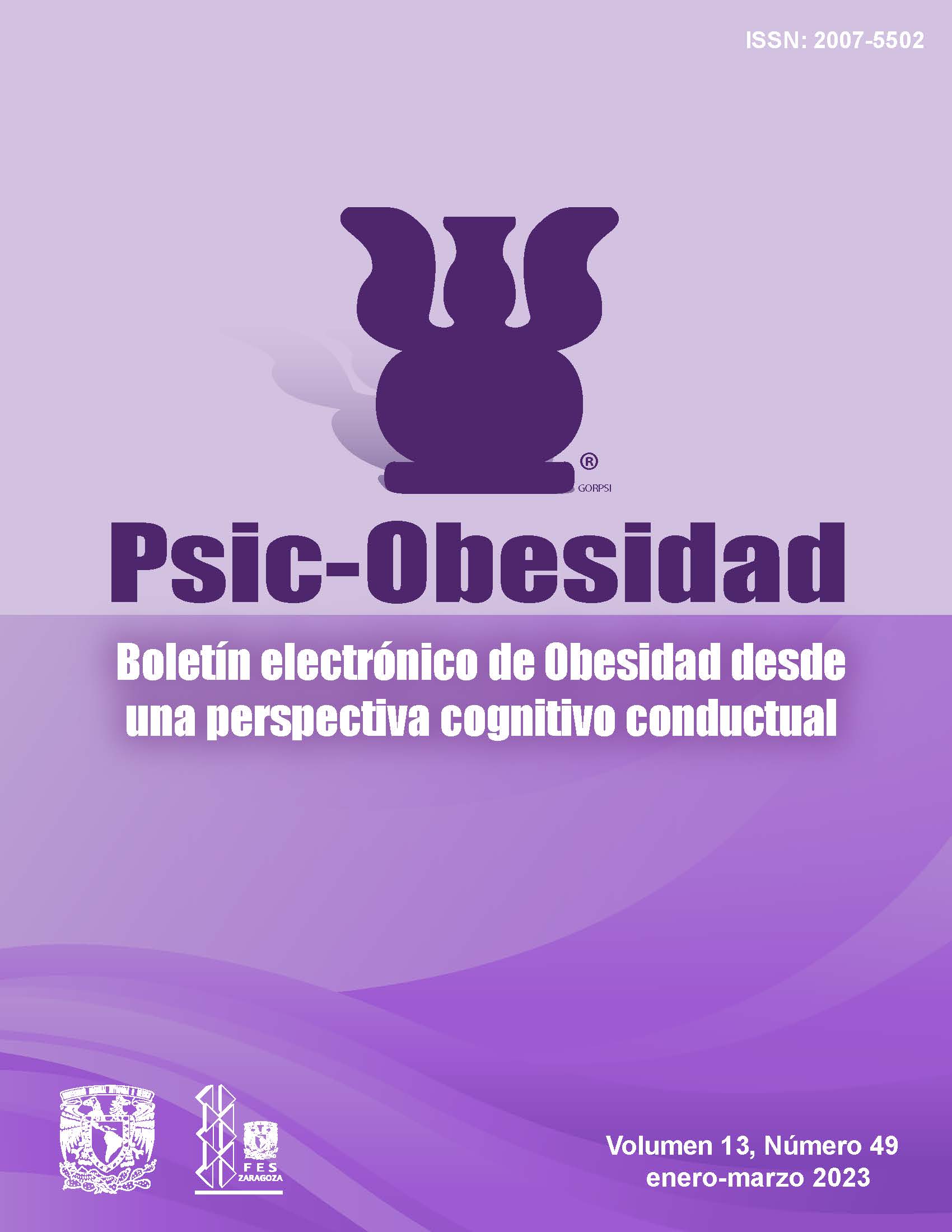Trabajo, alimentación y obesidad en adultos
Contenido principal del artículo
Resumen
La obesidad es un padecimiento muy frecuente en los países desarrollados, que ha aumentado de forma progresivamente en las últimas décadas. Tanto el sobrepeso como la obesidad, tienen un origen multifactorial, dando énfasis en la influencia del factor ambiental, considerando que un individuo genéticamente susceptible, colocado en un medio ambiente que le permita un fácil acceso a alimentos de alto contenido energético aunado a una rutina en la que se reduce la actividad física, se contribuye a la aparición de sobrepeso y obesidad. En la actualidad se considera un problema de salud pública en México, con la prevalencia más alta a nivel mundial, considerando a la población económicamente activa de adultos jóvenes la más afectada (Pimentel-Araujo, 2021). Las condiciones adversas de la actividad laboral conllevan a problemas de salud individual (y social) denominadas enfermedades psicosomáticas, entre ellas se encuentra el sobrepeso y la obesidad. Por lo que se puede considerar observar que el trabajo es un factor que puede tener un gran impacto en la calidad de vida de la población a nivel mundial, por lo que es imprescindible concretar el estudio de este factor para determinar estrategias de prevención e intervención para la mejora en salud de la población, por lo que en este trabajo se realiza una revisión teórica de los factores laborales asociados a sobrepeso y obesidad en adultos.
Descargas
Detalles del artículo
Citas en Dimensions Service
Citas
Borak, J. (2011). Obesity and the workplace, Occupational Medicine, 61(4), 220–222. https://doi.org/10.1093/occmed/kqr030 DOI: https://doi.org/10.1093/occmed/kqr030
Dakanalis, A., Mentzelou, M., Papadopoulou, S.K., Papandreou, D., Spanoudaki, M., Vasios, G.K., Pavlidou, E., Mantzorou, M., & Giaginis, C. (2023). The Association of Emotional Eating with Overweight / Obesity, Depression, Anxiety/Stress, and Dietary Patterns: A Review of the Current Clinical Evidence. Nutrients, 15(1173). https:// doi.org/10.3390/nu15051173 DOI: https://doi.org/10.3390/nu15051173
Kaner, G., Yurtdaş-Depboylu, G., Çalık, G., Yalçın, T., & Nalçakan, T. (2022). Evaluation of perceived depression, anxiety, stress levels and emotional eating behaviours and their predictors among adults during the COVID-19 pandemic. Public Health Nutr. 26(3), 674–683. doi: 10.1017/S1368980022002579. DOI: https://doi.org/10.1017/S1368980022002579
Myers, S., Govindarajulu, U., Joseph, M.A., & Landsbergis, P. (2021). Work Characteristics, Body Mass Index, and Risk of Obesity: The National Quality of Work Life Survey. Ann Work Expo Health, 65(3), 291-306. doi: 10.1093/annweh/wxaa098. DOI: https://doi.org/10.1093/annweh/wxaa098
Pimentel-Araujo, M. A. (2021). Factores Laborales Asociados a Sobrepeso y Obesidad en Adultos Jóvenes. Rev Asoc Esp Espec Med Trab, 30(3), 318-327. https://scielo.isciii.es/pdf/medtra/v30n3/1132-6255-medtra-30-03-318.pdf
Santana-Cárdenas, S. (2016). Relación del estrés laboral con la conducta alimentaria y la obesidad: Consideraciones teóricas y empíricas. Revista mexicana de trastornos alimentarios, 7(2). Versión On-line. https://doi.org/10.1016/j.rmta.2016.07.002 DOI: https://doi.org/10.1016/j.rmta.2016.07.002
Sarwer, D.B., & Polonsky, H.M. (2016). The Psychosocial Burden of Obesity. Endocrinol Metab Clin North Am, 45(3), 677-88. doi: 10.1016/j.ecl.2016.04.016. DOI: https://doi.org/10.1016/j.ecl.2016.04.016




